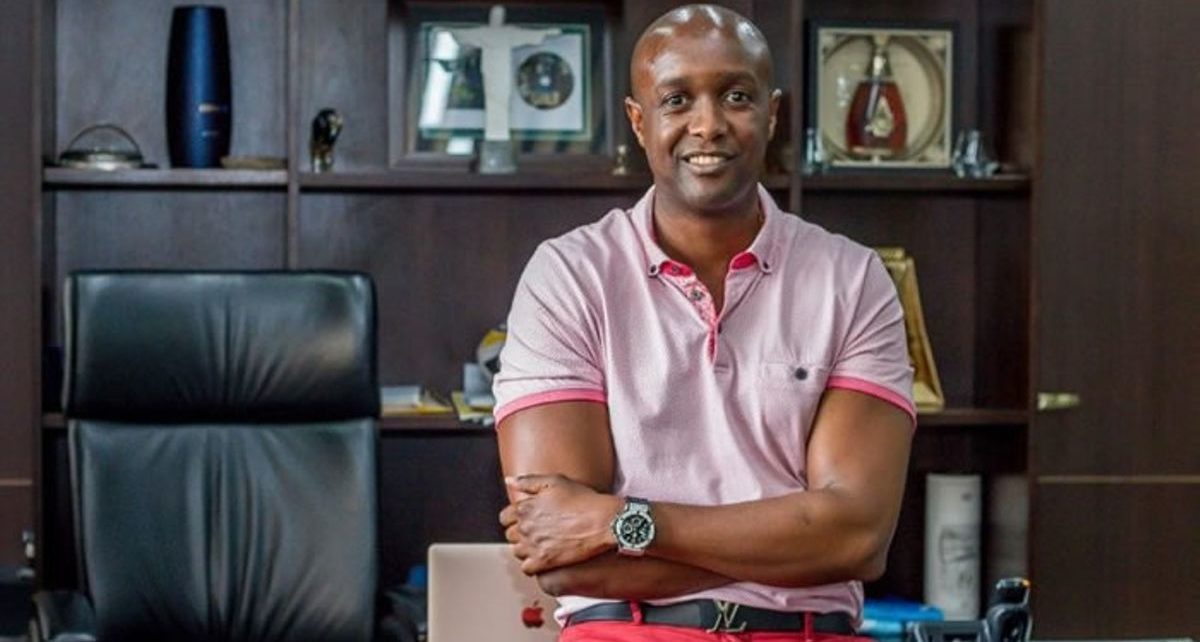Sales and marketing is the route Chris Kirubi took on his way to buying the most expensive rental block per square foot in East and Central Africa
By GW Ngari
Editor-at-Large
This is our final installment in this series on how money has been made, is made and will be made. If you wake up in the middle of the night in wonder of when you will hit the Jackpot, it might profit you to start reading from Part I. Enjoy reading the final installment…
17. Pure luck: Paradise Lost was a financial find
He called the place Paradise Lost, which rakes in Sh 50 million annually
The late billionaire Mbugua Mwangi’s route to wealth was one of pure luck, the kind found one in a million. Besides having the Kasarini Coffee Estate, his expansive farm in Kiambu County was blessed with natural waterfalls, dams and prehistoric caves. He turned it into a place for weekend getaways, corporate parties and picnics in the 1990s. That those attractions were found in his farm was pure luck, but turning the luck into cold cash was business acumen.
Through Ndunde Investments though, Mbugua had other properties in Kangemi, Runda, Ruiru, and Karen besides the Suguror Ranch in Laikipia County, Misahara Coffee Estate which houses Paradise Gardens. Kasarini Coffee Farm was where Isaac and Joseph hived off 20 acres and disposed them for Sh300 million in 2012, but that Daniel never got a cent, accusations the brothers denied. What is not in doubt is that having the farm alone was financial Paradise Found!
18. Nepotism: Please, let our cousin try
Gathecha’s Petrokenya Oil Company Ltd was paid Sh 68 million for supplying diesel to NYS
In The Kenyatta Succession, the book by Philip Ochieng and Joseph Karimi, we are old that Margaret was to be appointed Kenya’s ambassador to Saudi Arabi to control ‘charcoal business’ in Somalia and the Middle East for the Kenyatta family. Charcoal smuggling was a very lucrative business, implicating among others then Vice President Daniel arap Moi. Muigai, at Foreign Affairs, was to take care of business from Kenya’s end.
Nepotism, and the largesse that come it has followed President Uhuru so much so that his uncle, the late Paul Gathecha Muhoho, the brother of Mama Ngina Kenyatta was one of the beneficiaries of the National Youth Service (NYS) money. Gathecha’s Petrokenya Oil Company Ltd was paid Sh68 million for supplying diesel to NYS. Muhoho died in March 2017.
It was not the first time a relative of the president was involved in government tenders. Business woman Kathleen Kihanya, a cousin of President Uhuru Kenyatta and the one-time manager of the UK Centre was embroiled in the Sh5 billion Ministry of Health scandal in 2016. Her company, Sundales International co-owned with Uhuru’s sister, Nyokabi Muthama, was paid Sh41 million for supplying food to HIV patients. It was one in a series of tender payouts for which it received about Sh270 million from the Ministry of Health.
Could Jomo Gecaga have become Uhuru’s PA were it not by virtue of being his nephew?
Sundales was registered in 2013, the year Uhuru won the presidency and among other things it deals in the supply of heavy equipment, spare parts, construction materials, non-pharmaceuticals, food and printing services. The Sh5 billion scandal was flagged via an internal audit at the Ministry.
Nepotism was really good to the family of the late billionaire politician Nicholas Biwott
Charles Field-Marsham was also the supplier of Komatsu and Massey Fergusson trucks and equipment in Kenya and six other countries. He also owned Kestrel Capital, the most profitable stockbrokerage at the Nairobi Securities Exchange, making around Sh300 million through brokerage commission and advisory fees by 2017-an election year when business was down. Charles Field-Marsham relocated his business headquarters to Canada after Biwott’s death.
19. New products: Karauri hit Jackpot with Sportpesa
The Internet and sports betting were new products as was M-Pesa and mobile lending Apps
New products have always made money for the brave few whose rewards are only matched by their risks. There are no better examples than the late lamented SportPesa, the online gaming company which took advantage of mobile money, the Internet and a sports craze in Kenya to turn its investors into billionaires many times over. Its annual revenue tops Sh100 billion but the government has since shut it down over Sh5 billion in tax arrears halting its plans to list at the Nairobi Securities Exchange.
Selling Africa Online was their launching pad to big time business
Then there is the duo of Ayisi Makatiani, Amolo Ng’weno (above) and Karanja Gakio. They returned from studies in America in 1994. Kenya had no internet here. Selling Africa Online was their launching pad to big time business: Makatiani is managing partner at private equity firm Fanisi Capital, Ng’weno is CEO of BFA, a finance and technology consultancy while Gakio is regional manager of Endless Solutions.
The Internet and sports betting were new products as was M-Pesa and mobile lending Apps. There will always be space and money with new products.
20. Manufacturing was how the Shahs, Kimani Rugendo struck gold
This area is dominated by muhindis, mzungus and foreign investors
One of the easiest ways of minting millions is getting into area with little competition. One is manufacturing which in Kenya is dominated by muhindis, mzungus and foreign investors.
There are three reasons Kenyan Africans hardly venture into manufacturing: Capital, culture and colonialism. Most Kenyan Africans hardly have the cash outlay required. Attention to detail crucial in manufacturing is not part of work ethic culture of most while colonialism did not expose Kenyans to the rigour of production on industrial scales.
Indians, on the other hand, have a culture of communal saving
Indians, on the other hand, have a culture of communal saving for the capital, a culture of homespun industriousness and 300 years of British rule that inculcated the rigour of dealing with machines. Then there is history. Kenyans never went through Industrial Revolution, like mzungus.
Muhindis, on the other hand, had the benefit of the outsider who has no hang ups doing anything to succeed in a foreign environment.
That the colonial government banned them from owning farms and farm activities also pushed them to wholesale, retail and manufacturing businesses.
A study carried out by Rwandese economist David Himbara found that 75 percent of Kenya’s manufacturing sector is controlled by Asians with Kenyan Africans clutching at a measly five percent. The study was done in 1995. Over 20 years later, little has changed.
.


Respect to article author, some excellent entropy.
Like!! Really appreciate you sharing this blog post.Really thank you! Keep writing.